The U.N. in Haiti: Time to Adapt or Time to Go
After seven years in Haiti, it is time for the UN peacekeeping mission to either significantly refocus its mission or close its operation and leave the business of governing and reconstruction to the Haitians themselvesIt is time for the U peacekeeping mission in Haiti to either significantly refocus its mission or close its operation completely.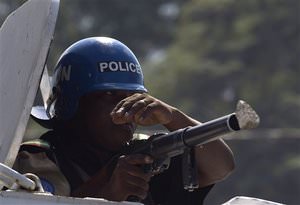
In the summer of 2009, visiting Haiti for the first time after an absence of three years, I found the country in better shape than at any time since I started visiting there in 1997.
Three years after the inauguration of René Préval as Haiti’s president (after the two-year tenure of an unelected interim government), the population of Haiti’s capital, Port-au-Prince, again felt safe enough to patronize downtown bars and kerosene-lit roadside stands late into the evening, where once armed gangs controlled entire neighborhoods. Billboards that once praised the infallibility of a succession of maximum leaders instead carried messages about the importance of respect between the population and the police, or decrying discrimination against the disabled.
A police-reform program was in its third year, providing the country with a level of professional law enforcement not often seen in a place where political patronage, not expertise, swelled the ranks of security forces with party loyalists. Investment was beginning to pick up and, by the end of the year, Haiti’s delicious signature rum, Barbancourt, had even won the bronze and silver medals at the International Wine and Spirit Competition.
Presiding over all this was the (at the time) 9,000-member United Nations peacekeeping mission in Haiti, known as MINUSTAH. When I sat that summer in the office of the head of the mission, veteran Tunisian diplomat Hédi Annabi, he seemed to be justified in his pride at the country’s progress, telling me that “the level of respect for basic freedoms, such as freedom of the press, is at a historically remarkable level.”
Of course, all of this changed at 4:53 p.m. on Jan. 12, 2010, when the country was struck by an apocalyptic earthquake that leveled much of the capital and surrounding towns and killed an estimated 200,000 people. Annabi, his deputy and nearly 100 other MINUSTAH personnel died as the structures they were in collapsed on them, and the peacekeeping mission itself became one of the many strata of Haitian society that needed rescuing.
A year and a half after the quake, with a new president (popular singer Michel “Sweet Micky” Martelly) and a contentious parliament locked in a bitter struggle for power, MINUSTAH, having picked itself up and dusted itself off, remains in Haiti, its force now increased to 12,000 under the leadership of Chile’s former minister of foreign affairs, Mariano Fernández.
Though an estimated 634,000 survivors of the quake still live in makeshift settlements in and around the capital, and Haiti remains without a government (two of Martelly’s nominees for prime minister have been rejected), it is my conclusion after a visit to Haiti last month that it is now time, after seven years in the country, for MINUSTAH to either significantly refocus its mission or close its operation in Haiti and leave the business of governing and reconstruction to the Haitians themselves.
* * *
Haitians have a keen sense of their own history as the site of the world’s first successful slave revolt (in 1804) and the second independent republic in the Americas (after the United States), a nation that has produced guerrilla leaders of the magnitude of Charlemagne Péralte and Benoît Batravill when faced with a two-decade U.S. occupation of the country in the early 20th century.
If you ask the average Haitian on the street what the purpose of MINUSTAH in Haiti is now, as I did in a vast tent encampment of displaced earthquake survivors in front of Haiti’s still-collapsed National Palace, they will answer you succinctly: MINUSTAH is in Haiti to protect the interests of the foreigners.
True or not, such a perspective has become conventional wisdom in Haiti, and it was a refrain that I heard time and again as I traveled this country that, though still stricken, is by no means beaten or defeated.
At this point, for the first time since I have been observing the mission, the sentiment on the street among a majority of Haitians appears to be a desire to see MINUSTAH in its current incarnation gone from Haiti.
For several reasons, MINUSTAH’s reputation with the Haitian people has reached its lowest level since it arrived in 2004.
A cholera epidemic that has killed more than 5,800 people since October has been linked convincingly to the mission. A June report by a group of epidemiologists and physicians in the journal of the U.S. Centers for Disease Control and Prevention said that evidence “strongly suggests” that the cholera strain had been brought to Haiti by U.N. peacekeepers and spread through a faulty waste disposal system along the Artibonite River, a conclusion supported by other studies.
Rightly or wrongly, the perception of MINUSTAH’s response to the crisis within Haiti itself has been of the mission stonewalling and obfuscating. This perception was reinforced in August when some residents of the country’s Plateau Central region accused the mission of dumping raw sewage near the Guayamouc River there, something MINUSTAH has denied.
In a far cry from the largely congenial relations I saw between U.N. peacekeepers and the local population in 2009, something of a bunker mentality has also appeared to have developed. On several instances — particularly at the intersection of the busy Route de Delmas and the road that eventually leads to the country’s international airport — I witnessed peacekeepers patrolling with their mounted machine guns pointed down at crowds of people who appeared to pose no threat at all and were merely going about the business of trying to secure the basic necessities of survival on any given day.Staying in a hotel only feet away from a tent encampment where thousands of Haitians sat in darkness throughout long evenings of pounding rain, an American filmmaker and I watched as a group of rather surly, well-fed men identifying themselves as police advisers with MINUSTAH literally drank themselves into oblivion over the course of two days. This took place under the gaze of local Haitian staff and other guests. Speaking to others in the capital, I discovered that such behavior is evidently not an uncommon occurrence, and it creates the unfortunate perception of a fraternity party amid an apocalypse, and makes the mission appear very removed from the daily struggles of the Haitians it is ostensibly there to protect.
* * *
By any estimation, MINUSTAH has done many things for Haiti during its years in the country. During a 2004-06 campaign of violence in the capital by various armed groups dubbed Operation Baghdad, a ghastly wave of kidnapping, arson and murder affected all levels of society, and at one point an average of one police officer was being killed every five days. The security forces of the interim government then in power often responded to this by broadly targeting the impoverished male population of the capital’s slums with extrajudicial executions. In tandem with Haiti’s police after Préval’s 2006 inauguration, MINUSTAH largely brought this period to an end, something for which Haitians should be grateful to it.
Likewise, when elements linked to political actors used the population’s legitimate anger over the rise of food prices as a cover for violent attacks against government installations and figures in 2008, it was likely only the presence of MINUSTAH that saved Préval from being toppled by a coup organized by these same elements.
MINUSTAH has built roads and worked hard to create a space where nonviolent political debate can take place. Haiti, however, ultimately needs to be governed and administered by Haitians, not as some eternal international protectorate. Having stood with Haitians through some of their worst days, the United Nations is now being seen more and more as an occupying force despite the fact that it has been in Haiti at the invitation of two democratically elected heads of state for five of its seven years there.
If Haiti is ever to change, it is Haitians who are going to have to change it, and MINUSTAH must now give them the space in which to do so. Haiti’s security force — the Police Nationale d’Haiti — has grown by leaps and bounds in terms of professionalism and accountability under the leadership of Mario Andresol, and now must be entrusted with more responsibility in terms of safeguarding the country’s fragile democratic gains.
Simultaneously, with so much hostility building up toward the mission in the country’s agricultural areas and elsewhere due to the cholera epidemic, the mission might do well to engage with Haitian peasant organizations in an effort to help revitalize the country’s ailing rural economy. Though peasant groups such as Tèt Kole Ti Peyizan and the 200,000-member Mouvman Peyizan Nasyonal Kongre Papay (the latter led by veteran peasant leader Chavannes Jean-Baptiste, winner of the 2005 Goldman Environmental Prize for grass-roots environmentalists) have been largely hostile to MINUSTAH’s presence, a détente between the groups could help foster the transition from strict peacekeeping to development, which is needed if the mission is to succeed.
Neither the United Nations, the United States nor any other foreign body can fix all of Haiti’s ills. Ultimately, the Haitians have to do it for themselves. Among Haiti’s political class, Haitians have to stop killing one another, Haitians have to stop being corrupt, Haitians have to stop paying and accepting bribes, and politics must no longer be viewed as a blood sport of winner take all where one side celebrates total victory and one side weeps in abject defeat and marginalization.
This has been the tradition of Haitian politics for more than 200 years, but it has not been the tradition of the majority of Haitians who have historically been excluded from the political process, and whose generosity, industry and fundamental decency impress all those who meet them.
The Haitian people understand this better than anyone else. In its current incarnation in Haiti, the United Nations mission has become an obstacle, rather than an asset, to the country taking ownership of the issues that confront it.
It is time for the mission to refocus on new tasks, or to leave while the Haitians can still see it off as a friend.
Your support matters…Independent journalism is under threat and overshadowed by heavily funded mainstream media.
You can help level the playing field. Become a member.
Your tax-deductible contribution keeps us digging beneath the headlines to give you thought-provoking, investigative reporting and analysis that unearths what's really happening- without compromise.
Give today to support our courageous, independent journalists.

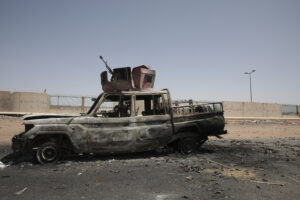
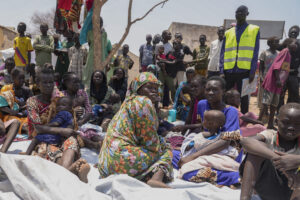
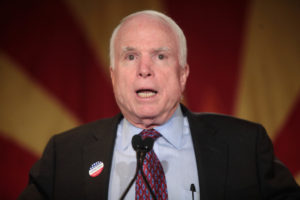
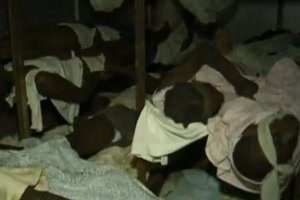


You need to be a supporter to comment.
There are currently no responses to this article.
Be the first to respond.